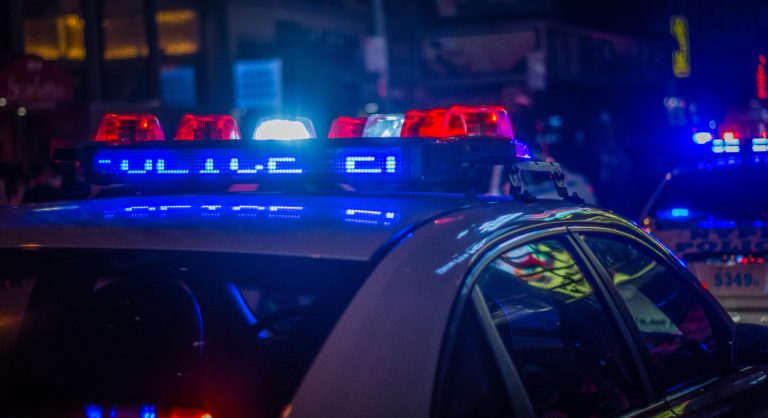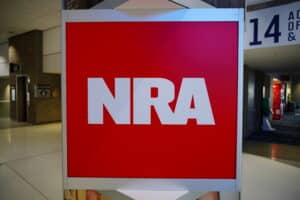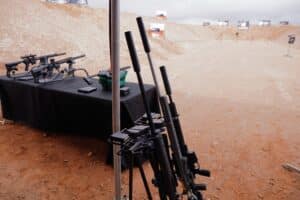In the week since the body camera footage of the Amir Locke shooting was released, supporters and critics of gun rights alike have been locked in a debate over how the gun-rights community should respond to such incidents.
The ensuing response from advocacy groups has thus far been varied. Some issued strong statements of condemnation, others issued more measured statements that expressed concern but reserved outright judgment, and still others chose to say nothing at all as the incident continued to grab headlines.
Questions of politics, police tactics, and thorny legal issues aside—the aftermath of the shooting highlights the growing divide among Second Amendment advocacy groups over how willing they are to address cases in which lawful gun ownership collides with law enforcement.
What Happened
Amir Locke, a 22-year-old Black man, was shot and killed by SWAT officers with the Minneapolis Police Department on February 2nd. Locke was shot while police were executing an early-morning “no-knock” search warrant as part of a homicide investigation. Locke was not named in the warrant, was not considered to be a suspect, and did not have a criminal record. Police were searching for his cousin who was known to have access to the apartment but who was instead at his mother’s apartment when the raid occurred.
Body camera footage from the officers who conducted the raid was publicly released on February 4th. The video shows police entering the apartment and shouting commands as Locke, who appeared to be sleeping under a blanket on a couch, gets up holding a gun that his family has said he legally owned. Officers then opened fire, striking Locke three times and fatally wounding him. The entire encounter transpired in less than 10 seconds.
The Public Responses
Some gun-rights groups were quick to comment on the shooting and address the broader sociopolitical issues associated with it. The Minnesota Gun Owners Caucus put out a press release the same day the body camera footage was released to the public.
“Mr. Locke did what many of us might do in the same confusing circumstances, he reached for a legal means of self-defense while he sought to understand what was happening,” Rob Doar, Senior VP of Governmental Affairs for the group, said. “The tragic circumstances of Mr. Locke’s death were completely avoidable. It’s yet another example where a no-knock warrant has resulted in the death of an innocent person. In this case, as in others, the public should expect and receive full transparency and accountability from law enforcement agencies that serve and protect our local communities.”
The group also explicitly addressed the racial element of the shooting in their remarks.
“Amir Locke, a lawful gun owner, should still be alive,” Bryan Strawser, Chairman of the group, added. “Black men, like all citizens, have a right to keep and bear arms. Black men, like all citizens, have the right to be secure in their persons, houses, papers, and effects against unreasonable search and seizure.”
The same day, the national gun-rights group Firearms Policy Coalition took to Twitter to address the shooting.
“This is not the world we should be living in,” the group tweeted in response to a video of the body camera footage. “This is not what liberty or moral law looks like.”
In a separate tweet, the group added a fiery condemnation of the police officers involved in the incident.
“Amir Locke had a fundamental human right to keep and bear arms for self-defense,” the group said. “He was wrongfully and immorally killed by armed agents of the state—nothing less than murderous thugs. This is not tolerable.”
Four days after the footage was released, Gun Owners of America (GOA), put out a public statement with a decidedly more reserved tone than previous groups.
“There are many valid questions that need to be answered,” the group said. “We will not rush to judgment because many initial reports are often wrong or incomplete.”
The group emphasized that it did not typically wade into criminal justice issues but suggested it was doing so in this instance to address the gun rights tension inherent to the Locke shooting.
“GOA is not a police reform organization,” the group said. “However, when police actions conflict with Second Amendment rights, GOA will not hesitate to insert ourselves in the public policy debate.”
While GOA did not offer as strong a rebuke against the police officers involved in the shooting as previous groups, it did call for an end to no-knock raids moving forward.
“With our review of the currently available facts, we are very troubled and saddened by the killing of Mr. Locke and call upon legislators to ban ‘no knock’ raids where no life is in imminent danger,” the group said.
Those That Stayed Silent
Other prominent advocacy organizations have chosen to remain largely silent on the incident. Groups like the National Rifle Association (NRA) and Second Amendment Foundation (SAF) have yet to put out any public statements, though SAF founder Alan Gottlieb did condemn the use of no-knock raids in a statement given to The Reload.
“Unfortunately, we have seen too many bad consequences for lawful gun owners from the use of no-knock search warrants,” Gottlieb said. “It is past time to limit them except at times when it is urgently time sensitive to save lives.”
The NRA did not respond to a request for comment on the incident.
The NRA has drawn heavy criticism for not speaking out on the Amir Locke shooting thus far, and it is hardly the first time the group has found itself in such a position.
After the 2016 shooting of Philando Castile by a Minnesota police officer during a traffic stop, the NRA declined to make a public statement on the matter. Castile was killed during the stop after informing the officer he had a gun on him for which he was licensed to carry. The shooting was live-streamed on Facebook and made news across the country.
The NRA faced questions over why the largest gun-rights group in the country would choose to stay silent in response to the killing of a lawful gun owner by police.
Philip Smith, president of the National African American Gun Association (NAAGA), was among those who criticized the lack of response from the NRA to the Castile shooting. He spoke to how that has since permanently alienated some black gun owners.
“Philando Castile. Lawful gun owner. Good guy. Loved by his family, loved by his peers, all-around community guy. Just well-liked,” Smith said on The Weekly Reload Podcast. “When you fail to respond to that, to a group of people that are basically saying we just want to hear something, something that we can gravitate to. But when you hear nothing but mice droppings, that makes folks say ‘why should I join you when you don’t hear me?’”
NAAGA has criticized the Locke shooting with Smith declaring “No Knock Equals No Justice” in a statement.
The Strategy Moving Forward
There are legitimate reasons why gun-rights groups might choose not to wade into the broader debate. Officer-involved shootings can be complex, subject to interpretation, and divisive amongst the general public. And it is in the interest of a donor-supported advocacy group to appeal to as broad a range of interested people as possible.
But the outcry in this instance has been significant. Some criticism, no doubt, is coming from those who are simply happy to find a reason to stick it to the NRA and other gun-rights supporters. Those voices may be less motivated by support for Second Amendment or criminal justice concerns. Other criticism, however, is clearly coming from a place of genuine concern. Some gun owners are incensed by the incident and see gun rights advocacy in the broader context of civil liberties.
With first-time gun ownership on the rise, and as the demographics of gun ownership continue to grow more diverse, a new class of gun-rights advocate has slowly been emerging. One that does not appear to be satisfied with shying away from incidents where gun rights and broader socio-cultural concerns intersect.
Given those trends, it may not be tenable for gun-rights groups to stay on the sidelines of these issues moving forward.







One Response
No-knock warrants should be banned except in the case where there is clear evidence of imminent violence and the warrant is approved by TWO judges and the address and evidence reviewed by TWO police agencies. This is not an anti-police position. Police are there to do what policies will allow. If police are prevented from no-knocks then they will abide by it.
But there is another category of warrants called “knock-and-announce with dynamic entry” which should also be banned except under the case mentioned above. Our rights to be secure in our homes must rise to the strictest scrutiny.
With the new double-standard in policing and prosecutions that treats gun owning conservatives as terrorists, I don’t trust local, state of federal gov’t police agencies to protect my rights or my life anymore.
And, I am against any new measures to increase “police accountability”. And, I support the use of choke-holds since they are less lethal.